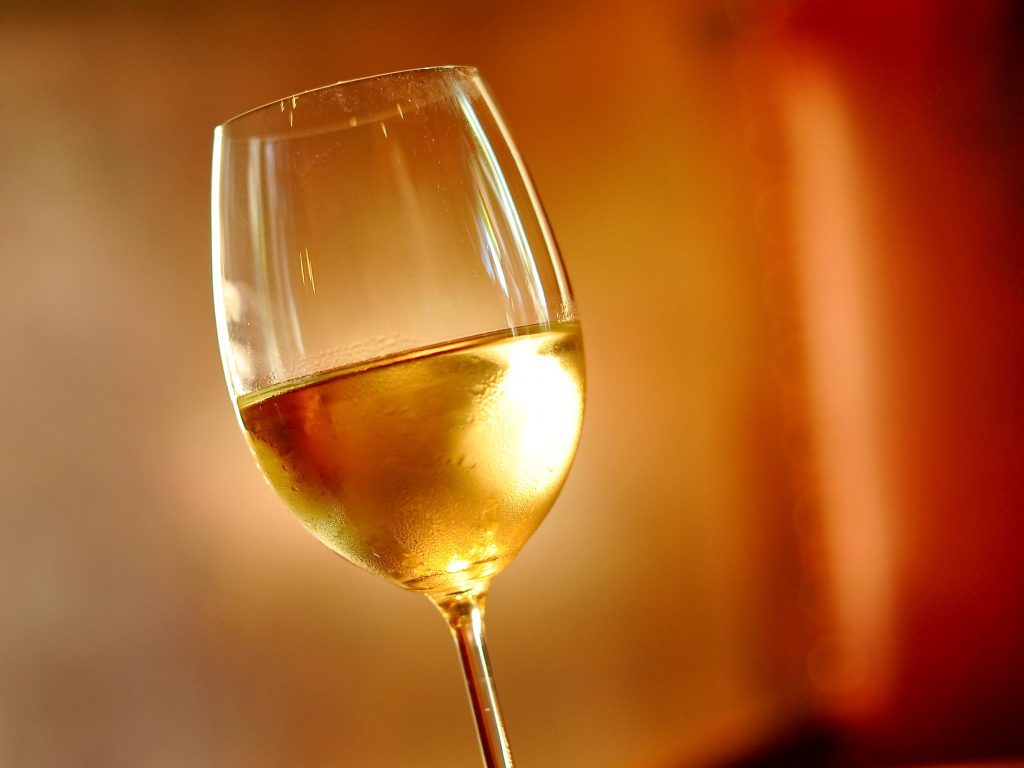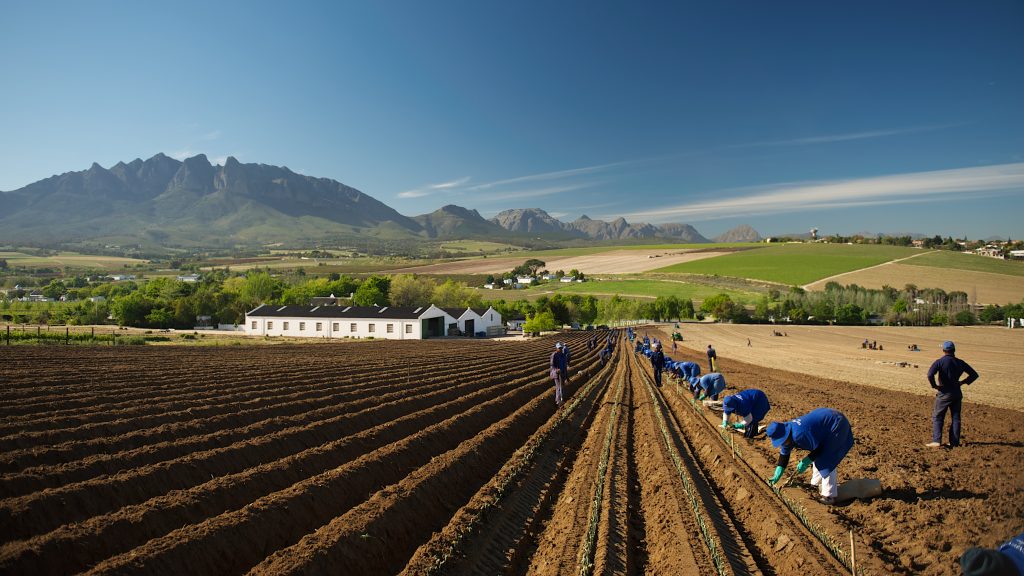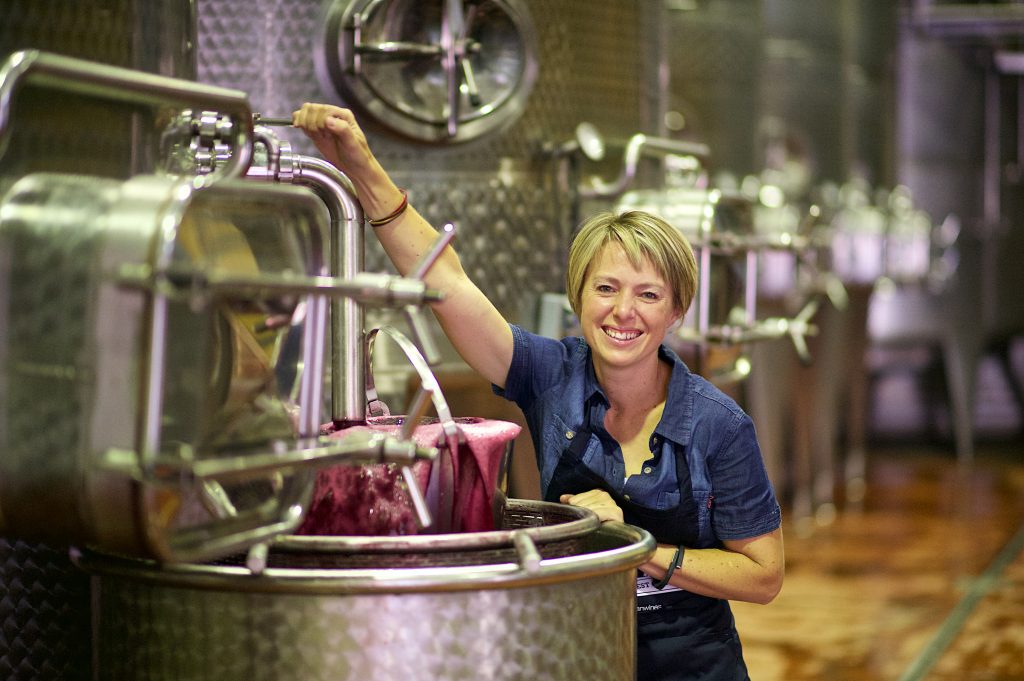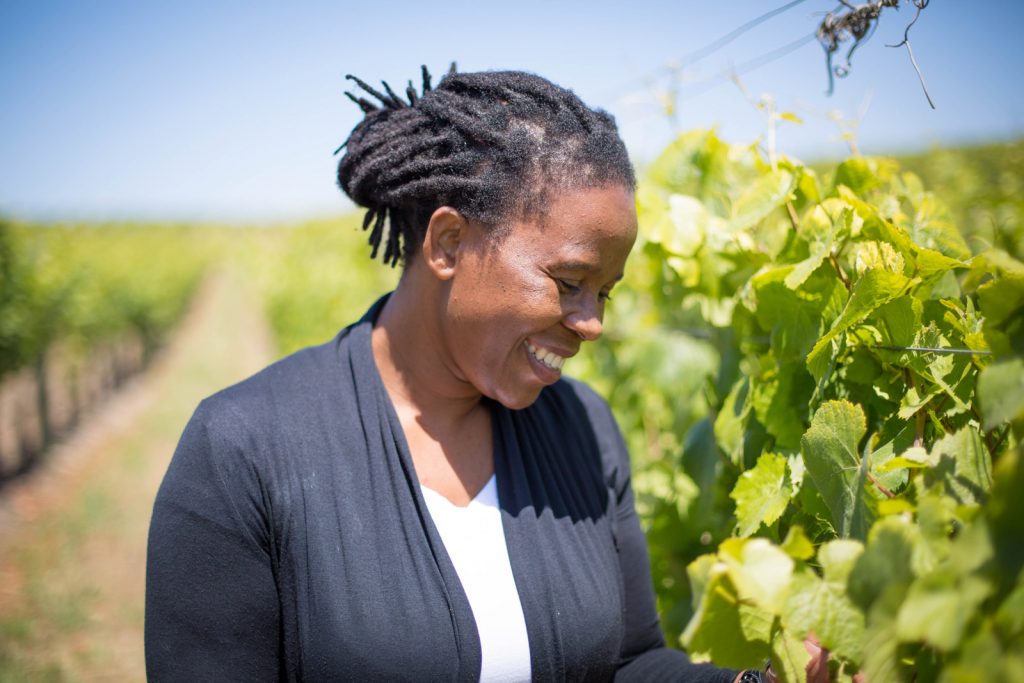South Africa’s Bosman Family Vineyards Releases a Coveted Orange Wine
From the eighth-generation family of winemakers comes a new skin-contact Grenache Blanc

An amber hue, unfamiliar and alluring in a wine glass, defines the sensory appeal to Bosman Family Vineyard‘s Fides. The color of this wine hints at a unique production and an even more curious taste profile—funky but finessed. Orange wines (not derived from the citrus fruit, but wine kept in contact with grape skins) represent an important, ever-emerging category. Few, however, can be approached with such ease. This thoughtfully done wine, part of Bosman’s innovation line, reflects a lot of the eighth-generation winemaking family’s values. And the more one learns about the wine and the family, the more there is to love.
Mika Bulmash, founder of the NY importer Wine for the World, is responsible for its presence in the US. Her knowledge and passion for the winery offers much insight. According to Bulmash, Bosman is the first South African producer to do a skin-contact Grenache Blanc. “This is a 100% skin-contact,” she explains about the orange wine. “About 20% of it has seen oak. The name Fides is Latin for ‘to trust,’ and the winemaker wanted to let it speak for itself.” It’s naturally fermented, the vines are in the process of being converted to organic and there’s minimal intervention. All of this represents the best viticulture has to offer, and yet it frequently leads to wines with a rawness that can put people off. Not the Fides. “This one opens doors,” Bulmash says, “and it gets people excited about the category.”

This is the first Fides vintage to reach the States, but not the first Bosman has produced. In fact, they were attempting to important the wine last year but they’d labeled the bottle with a description proclaiming “orange wine.” Denoting this category is acceptable in South Africa; for now, it is not accepted in the US. Rather than peel off all their labels, they distributed in their home country and had to wait for the next vintage, and prepare specific Stateside-appropriate labels. It set them back a year—and has been worth the wait.

“All of my wines comes from the angle of social impact and environmental sustainability,” Bulmash explains, regarding her desire to bring Bosman’s Fides and other wines from the portfolio to the US. It all began with Bosman, in fact. She’d joined them—and their some 260 local employees—for the harvest in 2011. “Bosman was the dream winery for me. They were one of the few brands that was premium and fair trade.”
They gave 26% of the company—the wine, the brand, the land and vine nursery—to the employees
Further, everything at Bosman is done by hand. And, of even greater importance, Bulmash explains their employees are part-owners, “From how labor is done to how wines are released, and who is involved, all employees have a voice—and long have. In 2007, this was formalized, as Bosman participated in the largest land transfer in South African history. They gave 26% of the company—the wine, the brand, the land and vine nursery—to the employees.” Today, all of those decisions are made by a joint committee.

At the helm is the highly awarded Corlea Fourie. Her assistant winemaker is also a woman, Natasha Williams. Petrus Bosman is the Managing Director—and is part of the generation that changed everything for the brand. Only 10 years ago Bosman began to make wines under their own label. The first five generations of the family made wines for themselves on their Wellington, SA-based Lelienfontein Estate, with the fifth also launching the Bosman family’s biggest business: viticulture. Today, Bosman tends one of the largest vine nurseries in the entire southern hemisphere. One in three South African vineyards buy their clones from Bosman. It was Petrus who embraced that their fruit was simply so good they needed to produce their own label. In the process, they renovated their 250-year-old wine cellar.

Many of Bosman’s wines are very small productions, so there isn’t the opportunity to distribute widely. “We are trying to meet the demands of consumers while dealing with the restrictions of the trade,” Bulmash adds. All exported South African wines have to be sustainably certified. It’s a program called IPW–integrated protection in wine. This only sweetens the desire.

A visit to the Wine for the World site offers sales locations at present. Bulmash will continue to champion the brand—while searching the world for others to import to the US. (Mexico is next on her radar.) “There are just some producers and specific viticulture sites that exude an energy that’s just powerful,” she says of her selection process. “There’s no systematic approach. Research is most important, and daunting at times,” she adds. But in the case of Bosman’s Fides, she’s pollinating viticultural diversity.












